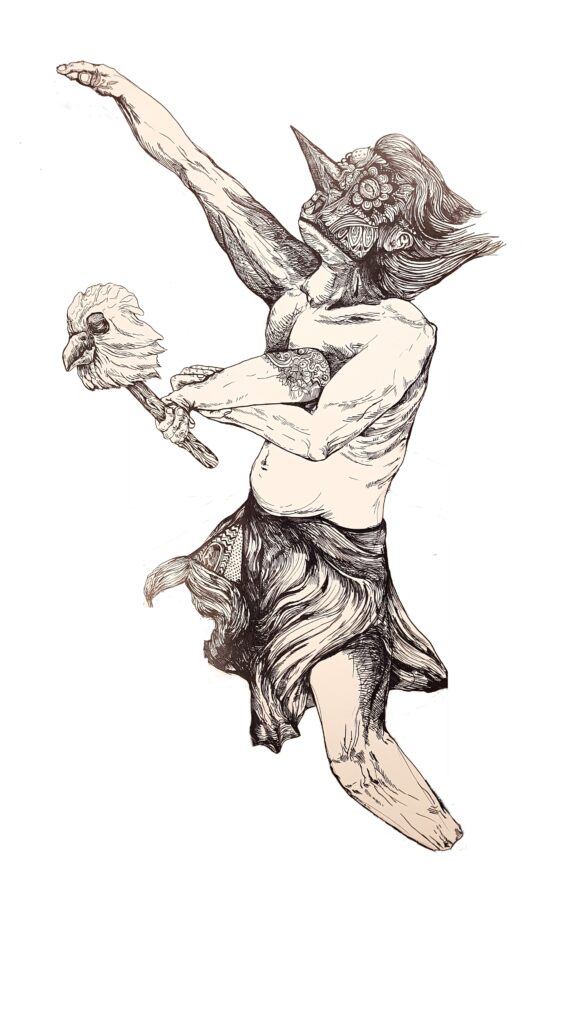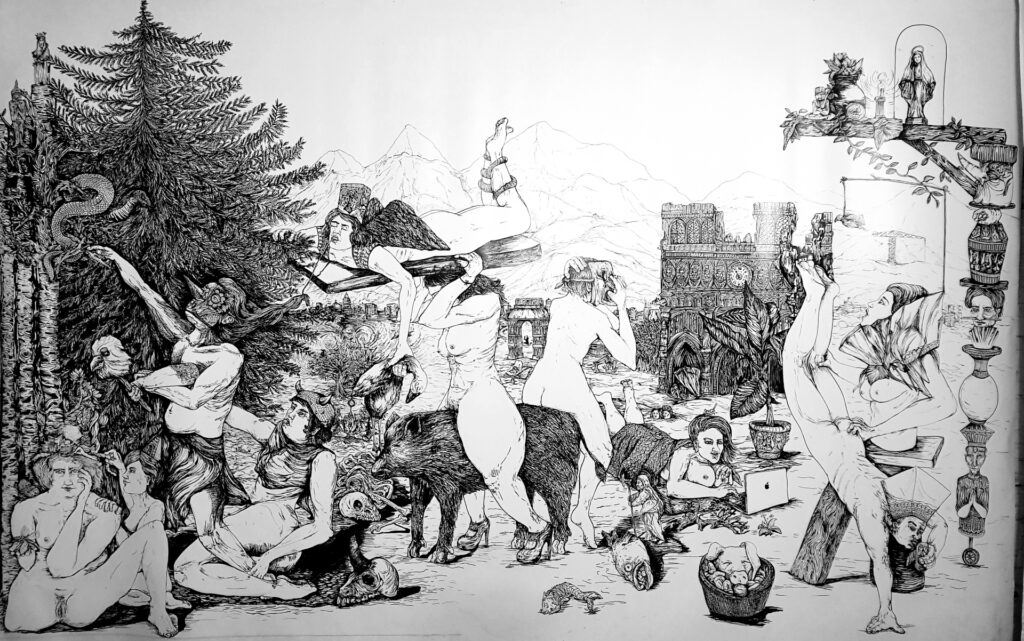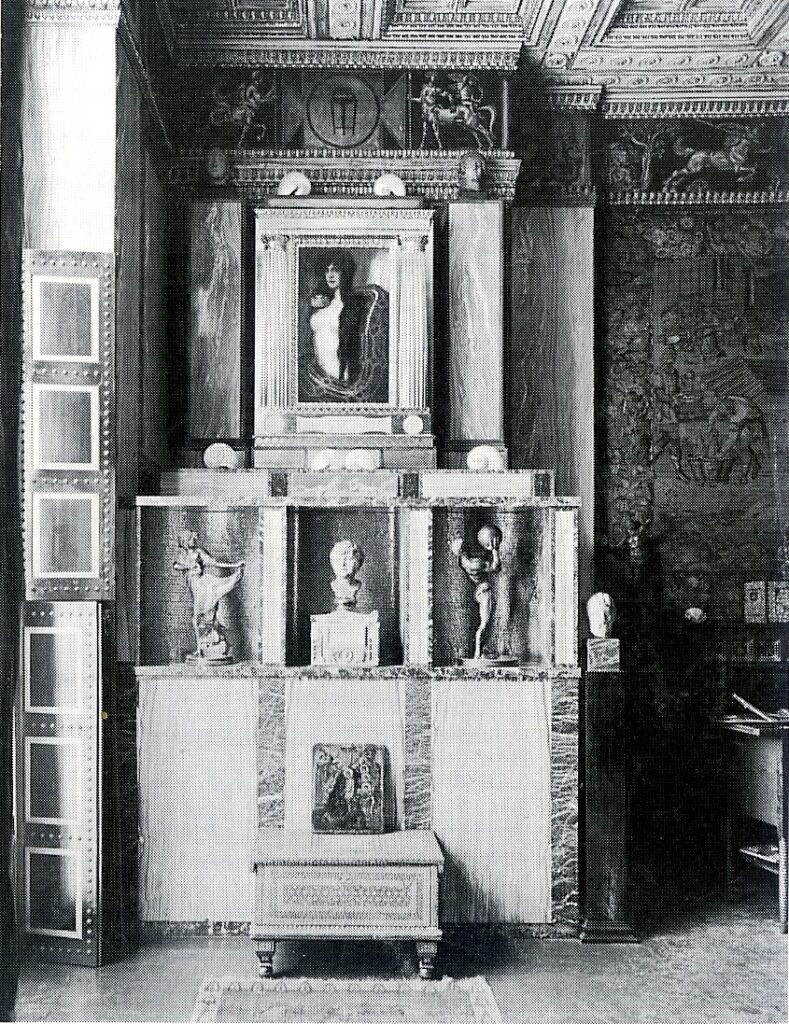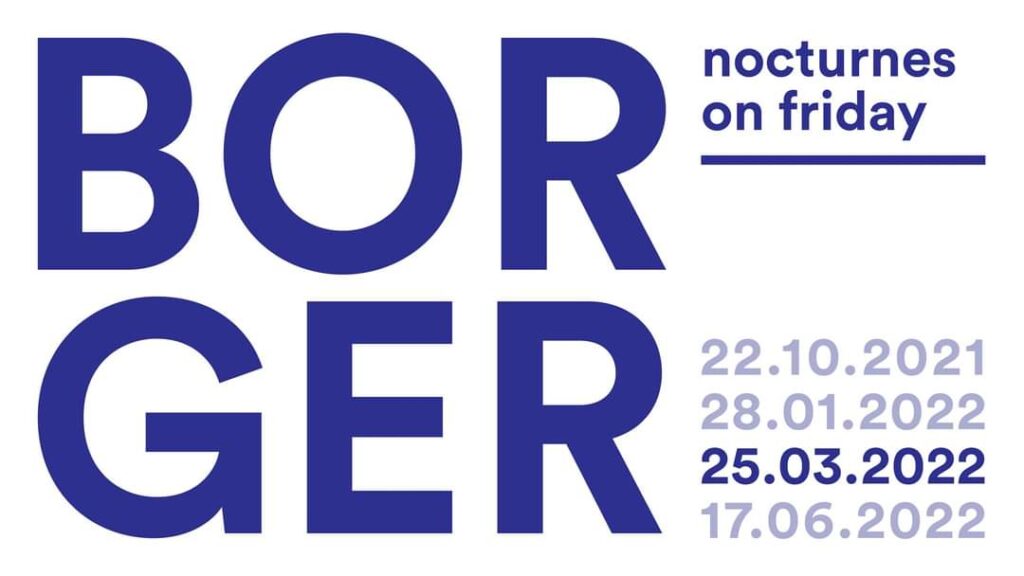

Representations of the ‘fatal woman’ can be dated back to thousands of years ago. In 19th century France, England and Belgium, she became a medium used by a sophisticated masculine artistic culture to explore its own struggle with sexuality in a world wherein women were slowly claiming their position on stage.
The association of woman with ‘nature’ was not inspired by a romantic vision on the feminine. Rather, it served a masculine strategy of submission: “… The femme fatale and the pure woman were reformulations of the ancient paradigm ‘woman as nature’, a model that tyrannically dominated discourses on womanhood in late-19th century France. Woman as nature was conceived of as an opposition to the higher masculine realm of human consciousness and culture, whose inhabitants strove to transcend and thus control both nature and women as its embodiment… “ [1]

While in the previous show All that Glitter is No Gold the work A Sunday Afternoon figured as the ‘final image’ or pièce de résistance, it now became the point of departure for ‘A Blessing in Disguise’, part two of this double show. With reference to the ‘altar’ the German symbolist painter Franz von Stuck constructed around his famous painting Die Sünde in his house in Munich, we take a step back and present a series of altars that question the legacy of the 19th century interpretations of the concept of ‘the fatal woman’ in the way it was pulled through modernity into our present times.

In this show, we declare the femme fatale a symbol of revenge against all enduring forms of machismo and patriarchal power. At the same time, she may be seen to represent sexual freedom and to hint at the fact of fluidity of gender and sexual orientation. In this perspective, the tension between sexual attraction driven by lust and curiosity and the anxiety of loosing oneself in a fatal perverse adventure remains, although now in an emancipated liberated way: whatever body and whatever sexual mind, to be human is to live with the fantasies that constantly aim to lure us into decadent pleasure beyond and against nature. Facing this blessing, the fatal is not in the concession but in the denial.
Annelies van Mol & Gaston Meskens, The Arts Institute, Antwerp, 25 March 2022
[1] Quoted from Passionate Discontent – Creativity, Gender and French Symbolist Art’, Patricia Mathews, The University of Chicago Press, 1997
[2] Photo: Stadtmuseum, Munich, taken from the book Franz von Stuck, Eros & Pathos, 1995, Van Gogh Museum Amsterdam, Published by Waanders bv, Zwolle.
Documents
Intro text and text ‘Die Stürzende Sirene’ (part of the soundscape)
Floor plan of the show
> . <
opening Friday 25 March 2022 6-11pm
+ 26 & 27 March 2-6pm & by appointment
The Arts Institute, Kattenberg 93 BoHo Antwerp
part of the BORGER Art Nocturnes
